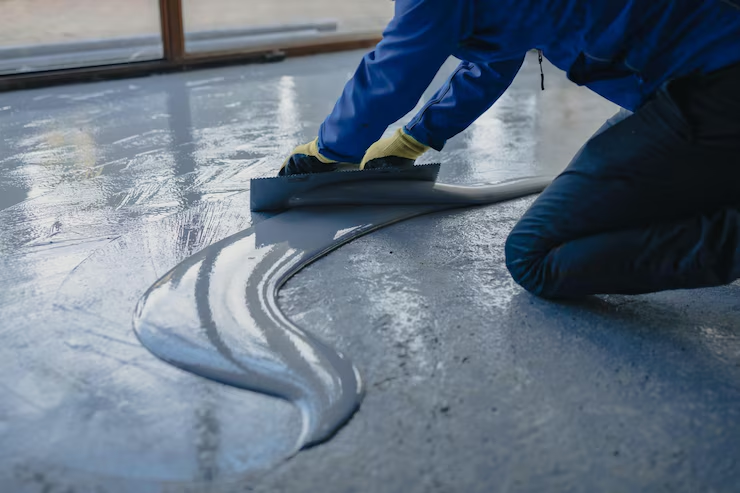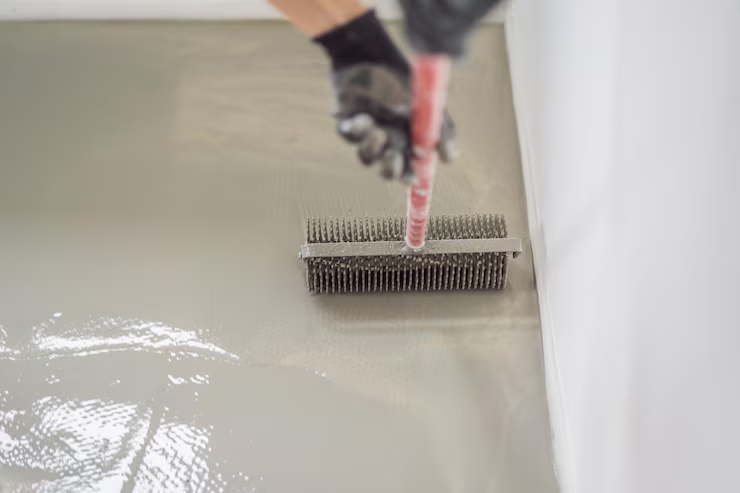The five best waterproofing materials are among the most critical elements in ensuring a building's longevity and safety. Water causes serious damage to concrete and metal surfaces over time, such as cracking, corrosion, and mold. Therefore, choosing the right material is crucial for both aesthetics and structural durability. To achieve a waterproof structure, the material used must be suitable for the application surface, climatic conditions, and building type. In this article, we will examine the most effective waterproofing materials in detail and evaluate options that provide long-lasting protection. We will also explain which materials are most effective depending on the application area. For more information, Sempoly You can examine professional solutions by visiting.
Bituminous Membranes: Classic and Strong Protection
Bituminous membranes are among the most preferred materials for waterproofing. Their durability, flexibility, and longevity make them suitable for a wide range of applications, including roofs, terraces, foundations, and curtain walls. Bitumen is a hydrocarbon compound derived from natural or artificial sources and is known for its waterproofing properties. These membranes are typically applied in two layers and fixed to the surface with a hot air gun, creating a seamless waterproofing layer.
The surface must be dry, clean, and smooth during application. Dust, moisture, or loose particles remaining on the surface can reduce the adhesion of the membrane. Therefore, professional application is crucial. The advantage of bituminous membranes is their high UV resistance and long-term performance. They are particularly effective in areas exposed to sunlight, such as terraces.
For more information about terrace applications Which type of coating is most suitable for waterproofing terraces? You can review the article. This article explains in detail the performance of different coating types and the correct selection criteria.
Polyurethane-Based Waterproofing Materials: Flexibility and Durability
Polyurethane-based insulation systems are an excellent solution for applications requiring flexibility, particularly on floors and complex surfaces. These materials are applied in liquid form and, once dry, form a single, seamless insulation layer. This feature completely prevents water leakage. Furthermore, polyurethane's chemical resistance provides protection against substances such as acids, salts, and solvents.
This material is particularly preferred in areas such as parking lots, terraces, and balconies. It provides both mechanical strength and an aesthetically pleasing appearance on the surfaces to which it is applied. Thanks to its color options, it can also be used for decorative purposes. However, it's crucial to ensure the surface is completely dry before application. Otherwise, adhesion problems may occur.
Polyurethane coatings offer the advantage of long-lasting use and, when applied correctly, maintain their effectiveness for up to 20 years. Applications performed with professional equipment guarantee water tightness. For more information Sympoly contact You can contact our expert team via the page and choose the most suitable material for your project.
Cement Based Crystallized Waterproofing Systems: In DepthWhat Protection
Cement-based crystalline systems, when in contact with water, create a chemical reaction, creating crystalline structures within the concrete. These crystals fill the pores and microcracks of the concrete, preventing water penetration. This method is particularly advantageous in areas subject to constant moisture, such as foundation shear walls and basements.
Crystalline systems are integral to the concrete. Therefore, they do not form an additional layer on the surface, meaning there is no risk of peeling or swelling. Furthermore, even if the surface is damaged, the crystalline structures reactivate upon contact with new moisture, repairing the insulation. This feature makes the system self-renewing protection in the long term.
To learn more about foundation wall applications How to waterproof foundation curtain walls? You can take a look at the guide. This resource explains in detail the advantages and application methods of crystalline systems.
Crystalline waterproofing is also an economical option, as both the material and application costs are lower than other systems. However, to achieve effective results, the material must be mixed correctly and applied evenly to the surface. Therefore, professional assistance is recommended.
EPDM (Ethylene Propylene Diene Monomer) Membranes: The Long-Lasting and Environmentally Friendly Option
EPDM membranes are synthetic rubber-based materials and are particularly known for their environmentally friendly structure. These membranes exhibit excellent resistance to temperature fluctuations, maintaining flexibility from -40°C to 120°C. This feature makes them suitable for use in both hot and cold climates.
The most significant advantage of EPDM membranes is their high resistance to UV rays and ozone. This allows them to be used outdoors, particularly on roofs and under solar panels, without any problems for many years. They are also very easy to install, allowing seamless application over large surfaces and ensuring a high level of sealing.
EPDM materials are also very effective against moisture and water problems in basements. Detailed technical information on this subject is available. How should waterproofing be done in basements? You can find the article here. Performance analyses and application examples of different material types are included here.
EPDM's environmentally friendly nature is further supported by its recyclability. This feature increases its popularity in sustainable projects. Furthermore, its lack of maintenance reduces operating costs and provides long-term economic advantages.


